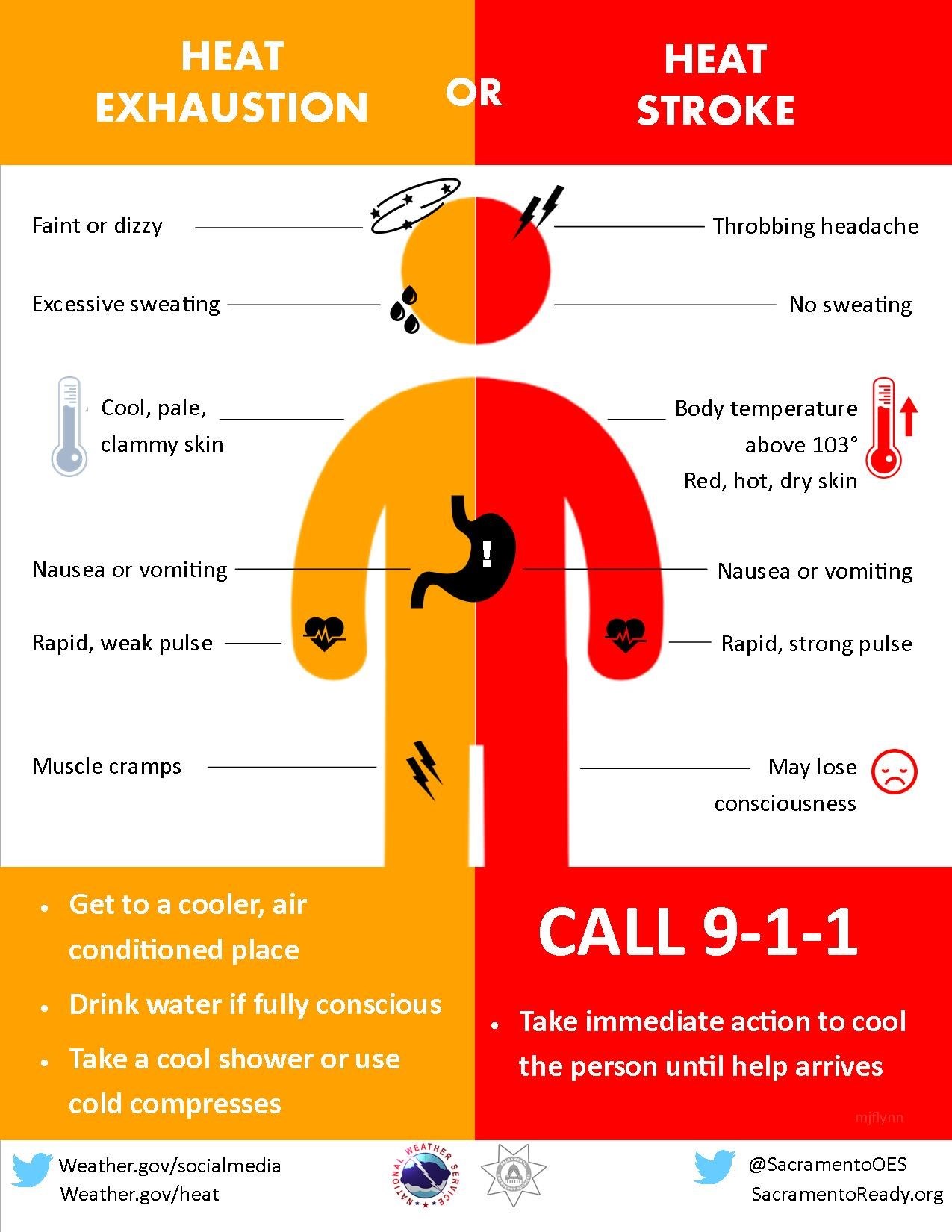Beat the Heat: Hot Weather Safety

The Red Cross and the Centers for Disease Control and Prevention (CDC) are great resources on how to beat the heat. Here are some helpful tips to stay safe during the summer heat:
- Monitor your FIRST WARNING WEATHER FORECAST to see how high the temperature will reach.
- Drink plenty of water, even if not thirsty.
- Avoid alcoholic beverages; alcohol can increase a person's risk to heat related illnesses.
- Postpone outdoor games and activities. Activities should occur on the morning or in the evening. Stay in the shade as much as possible.
- Individuals with chronic health problems, such as heart disease or lung problems, should minimize activities because the heat will add additional stress.
- Extra caution should be taken for the elderly and young infants and children to assure that they are protected from the heat.
- Individuals on medications should check with their doctor or pharmacist to see if the medicines put them at increased risk of heat related illness.
- Check on those who may need assistance.
- Wear lightweight, light-colored, loose, cotton clothing.
- Eat light meals.
- Adjust blinds, shades and awnings to keep the sun out.
- Children and pets should not be left unattended in closed vehicles. Temperatures quickly rise to dangerous levels.
- Use air conditioning, or spend time in a cool basement. Many facilities such as libraries, malls, movie theaters and other public areas are air-conditioned.
- Keep in mind fans are only effective when they are bringing in cool air. When the relative humidity is high, the evaporative cooling of sweat is diminished.
Heat Exhaustion
Excessive heat can lead to sunburn, heat cramps, heat exhaustion and heat stroke. If someone is experiencing heat cramps in the legs or abdomen, get them to a cooler place, have them rest, lightly stretch the affected muscle, and replenish their fluids with a half a glass (about 4 ounces) of cool water every 15 minutes.
If someone is exhibiting signs of heat exhaustion (cool, moist, pale or flushed skin, heavy sweating, headache, nausea, dizziness, weakness exhaustion), move them to a cooler place, remove or loosen tight clothing and spray the person with water or apply cool, wet cloths or towels to the skin. Fan the person. If they are conscious, give small amounts of cool water to drink. Make sure the person drinks slowly. Watch for changes in condition. If the person refuses water, vomits or begins to lose consciousness, call 9-1-1 or the local emergency number.
Heat Stroke (Life-Threatening)
Signs include hot, red skin which may be dry or moist; changes in consciousness; vomiting and high body temperature. Call 9-1-1 or the local emergency number immediately if someone shows signs of heat stroke. Move the person to a cooler place. Quickly cool the person’s body by immersing them up to their neck in cold water if possible. Otherwise, douse or spray the person with cold water, or cover the person with cold, wet towels or bags of ice.

Links

